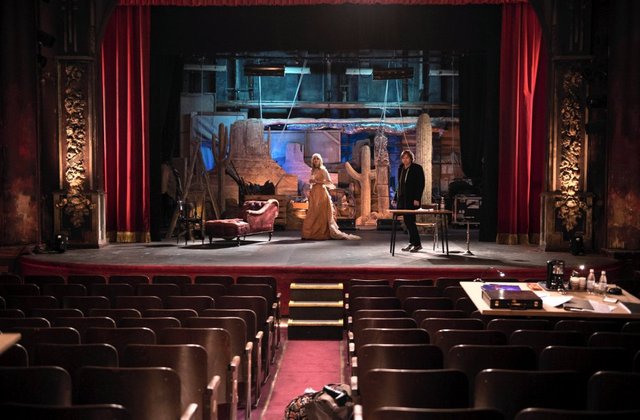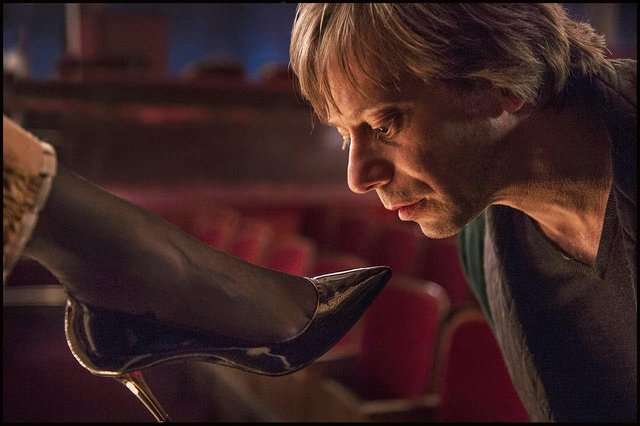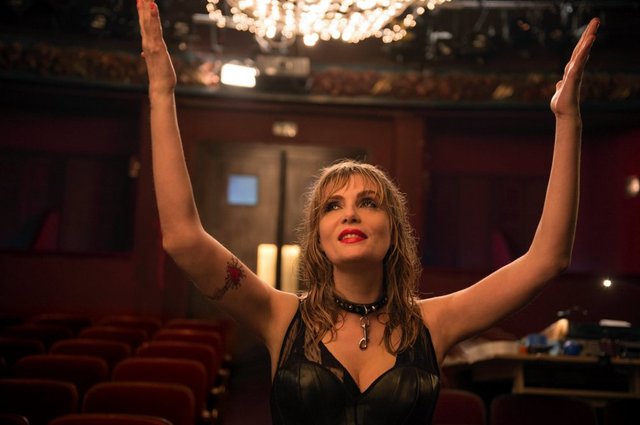
'Shiny, shiny, shiny boots of leather'
This verse begins the "anthem of subjugation" Venus In Furs of the legendary American band The Velvet Underground written by Lou Reed in 1967. It was inspired by the eponymous work of Leopold von Sacher-Masoch, the author who gave masochism a name. The work that was first described masochism didn't inspire only The Velvet Underground, but it became a template for numerous performances and films, and criticism often emphasizes that it influenced Kafka, especially his Gregor Samsa, whose surname many believe was anagram for surname Sacher-Masoch.
The author of the book used the epigraph of the biblical apocryphal book on Judah: "The Lord Almighty overcomes them with the hand of a woman" (Judith, XVI, 5). Recall Judita was a brave Jew who, worried about her Jewish people in the invading hands, uses the most powerful female weapon - beauty - to lure Holofern, the Assyrian army officer, and cut off his head. This powerful act was an inspiration to numerous artists, and somewhat inspired Sacher-Masoch for the idea of his powerful Venus in fur.
In Sacher-Masoch's book, Severin begs Wanda von Dunajew to sign a contract that she will become his mistress, a torturer wrapped in a fetishist fur. Fur here conveys animalistic, even masculine nature (fur is also a symbol of male, hunting nature), which is completely dominated by women. The protagonist Severin after becoming Vanda's slave gets the name Gregor. A photograph of the "Venus in fur" will be taken over by Kafka in his Metamorphosis, in which, as in Sacher-Masoch's work, the limits of personal degradation are examined. Gregor shot the photo of the Venus in fur from the magazine, put it in a golden frame, and kept it for the rest of his unhappy life.

In Polanski's adaptation of the theatrical piece by David Ives, Venus in Furs Wanda is different than nineteen-year-old noble Wanda from the "book" in a somewhat petty nature - loud chewing gum, talking with heavy slang, enters the audition she has missed. At the theater, she meets director Thomas, who initially resisted her emptiness at a delay, eventually becoming her Severin or the martyr. As soon as she gets a chance to play Wanda, she is transformed; pulling out his ready-made "nineteen-year-old" costume, long black leather boots and most importantly - reveals that knows Wanda's text 'by heart'. Emmanuelle Seigner initially groans into the theater of the director, which visibly disturbs him, that she would actually brings Wanda von Dunajew to life, and take away the original authority of the director and bring to life the real drama about Venus in the furs, which will hypnotize her own director.
Her character is evolving from an incredibly nasty actress who crashes into an audition that ended up with a critically illuminated dominoe that begins to intervene in the director's text. She sees the book as a sexist. There is a controversy between them, and she doesn't want in the script a sentence from the book "you will never be safe in the hands of a woman". For her, the book is a plain perversion: "This story is a cliche, someone whipped him like a kid and now he suddenly likes to be whipped."
The director with a passionate grief defends the book saying that it is a passion, not a mere perversion: "In Wanda, the desire for domination was just awakened by Severin." Wanda challenges the director by telling him to stop hiding behind the 140-year-old book, and if he is a latent masochist to confront with his sexual fantasies. Mathieu Amalric, who is playing the director Thomas, who will experience complete transformation by the end of the film, has the facial features of the face incredibly reminiscent of 30 years younger Polanski, husband of Emmanuelle Seigner, giving the whole situation a special feeling of conviction.

The film has reached its culmination in the gradation from the ordinary relation of director and actress to taking actual roles in the play, the role of Wanda and Severin. The line that divides reality into film and theater fiction begins to get off as far as we can see is when Wanda addresses Thomas as a director, and when she addresses him as her martyr Severin. Their original identity is gradually being suppressed and silenced.
Interestingly, for the melody of his mobile phone, he chose a rather masculine Wagner's song Ride of the Valkyries, which the dominant Wanda decisively pushed out of the theater by dropping the phone from the side, after making him say to his fiancée from the other end of the phone line that he would not come home tonight .
It is difficult to adapt theater text to the film reality, especially since it is reduced to only one location. And Polanski really used only one (theatrical) space and two actors - a pattern that turned out to be successful in his previous films.

The game of sexual power is the backbone of numerous Polanski works, let us remember only the maestral Bitter Moon in which the relationship is reduced to the question of who is dominant of the singer, and already his Emmanuelle Seigner has turned out to be brilliant in the role of a gentle and young girl who has moved into a brave domino.
In the end, we could ask ourselves - who in the actor-director's marriage Seigner-Polanski wears "shiny, shiny, shiny boots of leather"?
note: this was my translation from croatian to english from Ziher hr article 'Adaptacija Kazališnog Komada: Venus in Furs', by J.Lovric
thank you very much for share this post.
Downvoting a post can decrease pending rewards and make it less visible. Common reasons:
Submit
Nice review i love the way you review films
Downvoting a post can decrease pending rewards and make it less visible. Common reasons:
Submit